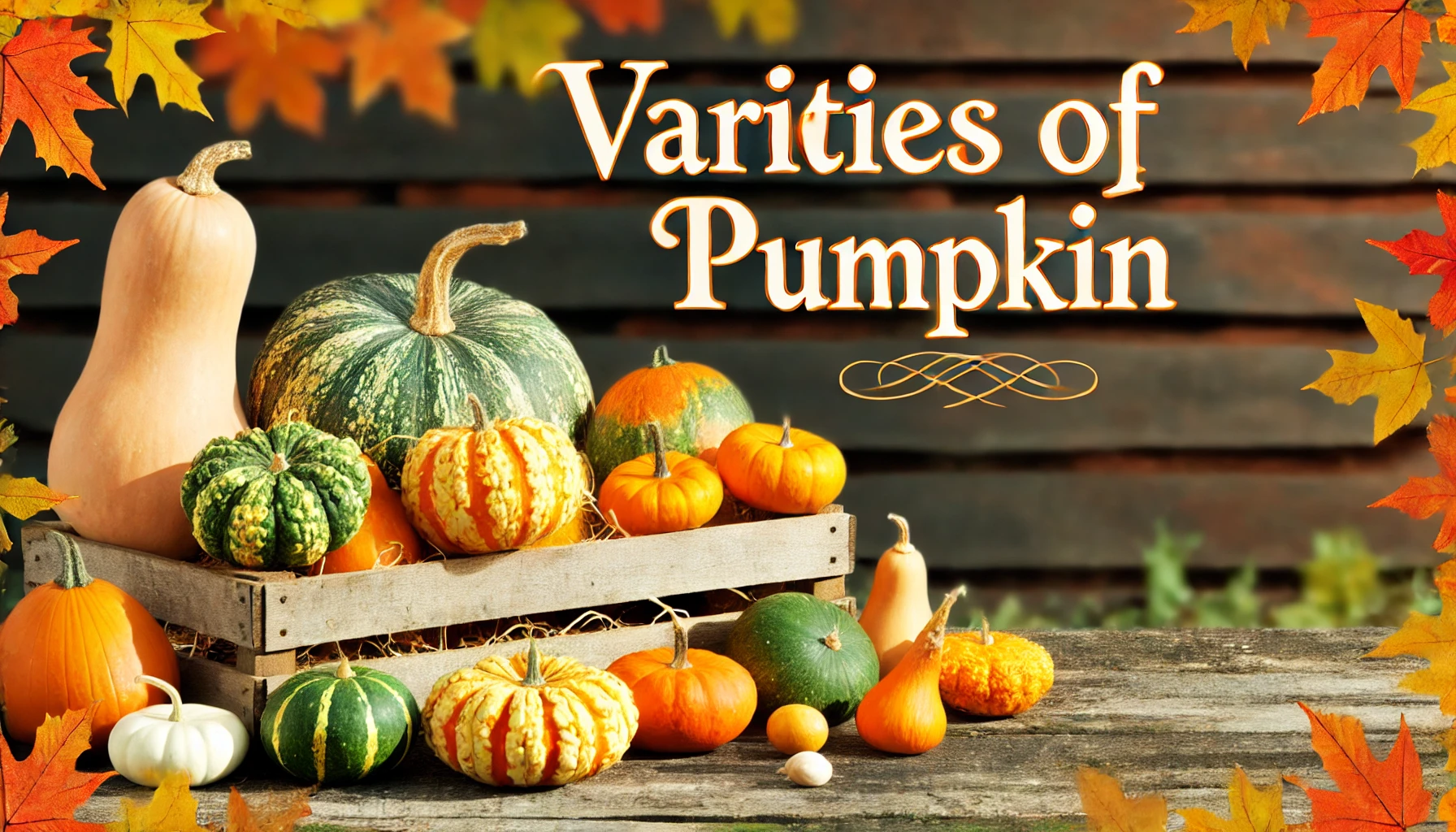Pumpkins come in a wide variety of shapes, sizes, and colors, each with its own unique characteristics and suitability for different growing conditions. Whether you’re a beginner gardener or an experienced enthusiast, there’s a pumpkin variety to suit every taste and garden space.
Varieties of Pumpkins:
- Jack Be Little:
- Specialty: Miniature size, perfect for decorative purposes and small-space gardens.
- Advantages: Ideal for container gardening or ornamental displays. Quick to mature.
- Disadvantages: Limited culinary use due to small size. Requires regular watering in containers.
2. Sugar Pie:
- Specialty: Sweet, flavorful flesh, perfect for pies, soups, and baked goods.
- Advantages: Versatile culinary use. Compact vines suitable for small gardens or raised beds.
- Disadvantages: Longer maturation period. May require trellising or support for heavy fruits.
3. Atlantic Giant:
- Specialty: Massive size, often used for competitive pumpkin growing contests.
- Advantages: Impressive visual impact. Can yield exceptionally large fruits under optimal conditions.
- Disadvantages: Requires ample space and strong support structures. Longer growing season.
4. Cinderella (Rouge Vif d’Etampes):
- Specialty: Deeply ribbed, flattened shape reminiscent of fairy tale pumpkins.
- Advantages: Unique appearance, ideal for decorative use and autumn displays.
- Disadvantages: Prone to rot if not properly cured. Limited culinary use due to coarse texture.
5. Butternut Squash:
- Specialty: Distinctive bell shape, sweet and nutty flavor, versatile culinary use.
- Advantages: High yields per vine. Suitable for both fresh consumption and long-term storage.
- Disadvantages: Requires warm weather and a longer growing season. Vines can be sprawling and space-consuming.
6. Jarrahdale:
- Specialty: Blue-gray skin and sweet, flavorful flesh, perfect for roasting and baking.
- Advantages: Unique coloration adds visual interest to autumn displays. Good resistance to pests and diseases.
- Disadvantages: Longer maturation period. May not store as well as other pumpkin varieties.
Each pumpkin variety offers its own set of advantages and disadvantages, making it essential to choose the right variety based on your gardening goals, available space, and culinary preferences.



